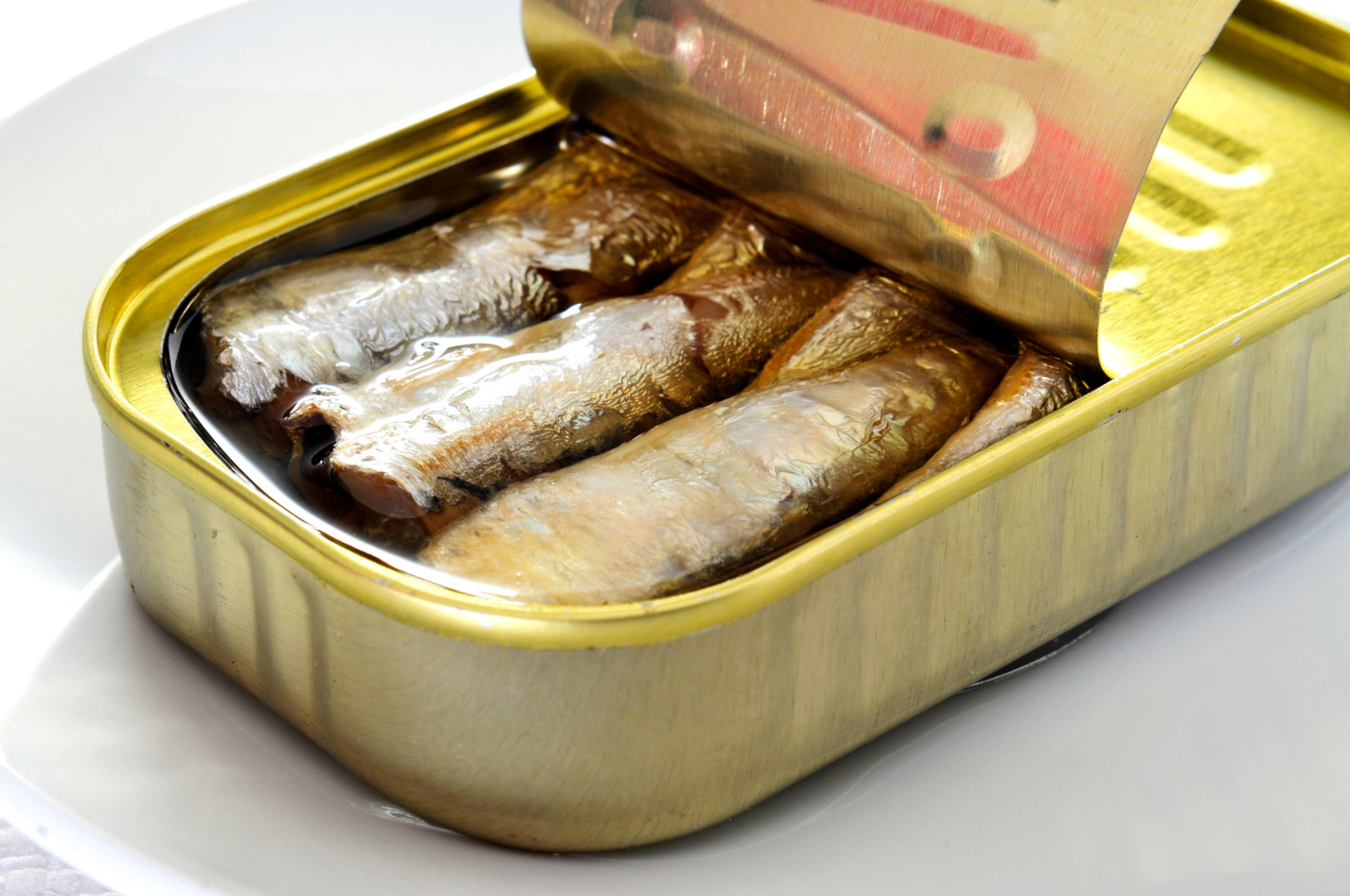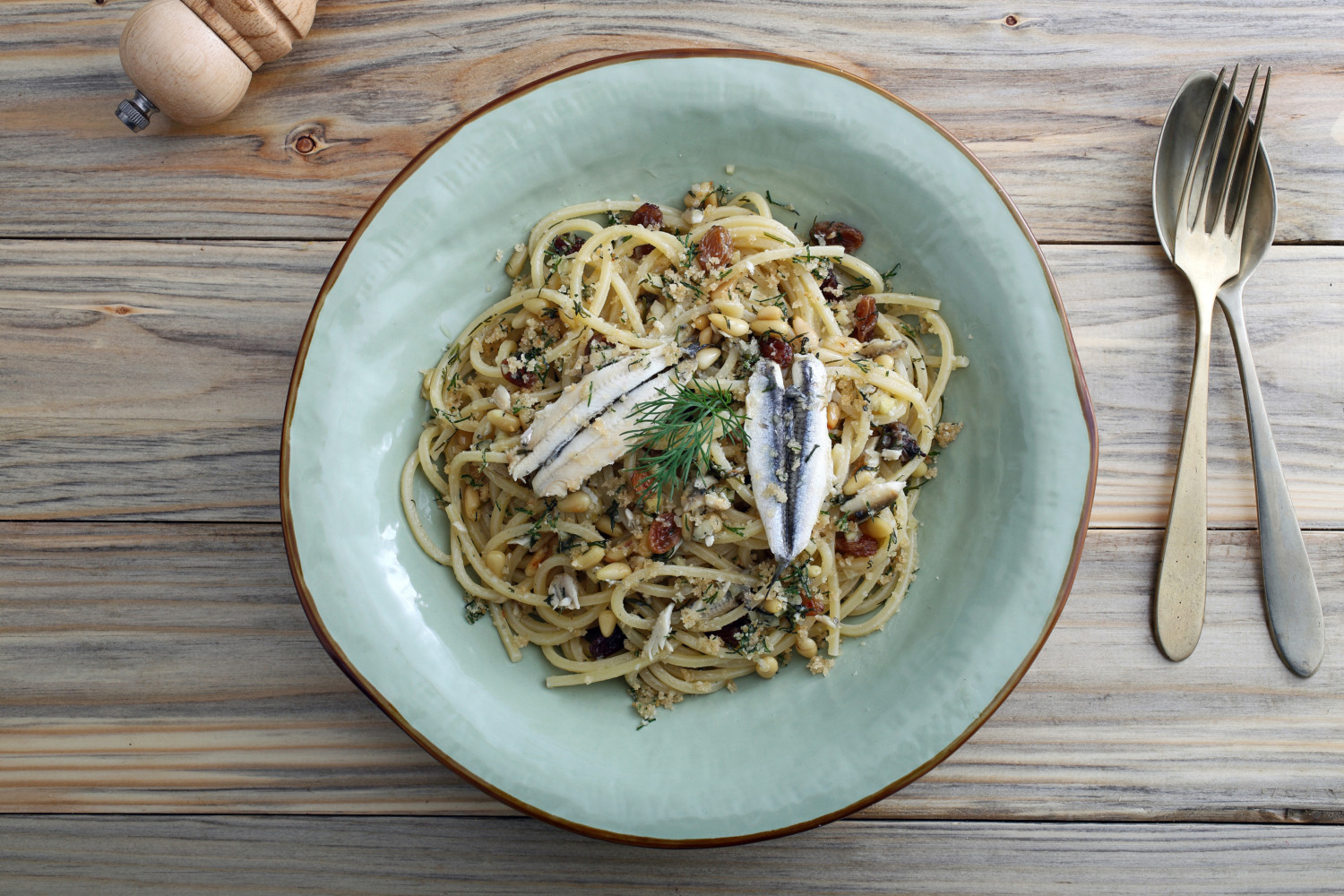When it comes to small fish, you might wonder if sardines and anchovies are the same.
But while these two little fish are often confused as being identical, they are each uniquely their own. Sardines and anchovies are two different species of fish that are found in different types of water. Even though you might find them similarly packaged, they have their own distinct flavoring.
But when it comes to preparing a dish with sardines versus anchovies, the real question is, are they interchangeable?

Similarities Between Sardines And Anchovies
Both tiny, oily fish can bring umami flavor to a recipe. Both swim the — and can be found neighboring one another on supermarket shelves. Sardines and anchovies are healthy and easy ways to increase protein and get your omega-3s. Sardines are high in vitamins B12, D and selenium, and anchovies provide small amounts of calcium, iron and potassium and are rich in selenium. It’s worth noting that some anchovies contain very high sodium content. If you’re watching your salt intake, opt for fresh fish or consider using sardines instead.
Know The Difference Between Sardines Versus Anchovies
While still small in size, sardines are considerably larger than anchovies. Sold fresh or canned in brine or oil, often with the heads still attached, sardines are flakier in texture with a less pungent taste. Some people refer to them as having a subtle, buttery undertone. Sardines’ exterior is silver in color and their flesh is lighter.

Anchovies, on the other hand, pack a strong, flavorful “fishy” punch and are quite salty. There are more than 100 different species of anchovies, and there are freshwater and brackish water varieties. Anchovies’ exteriors are somewhat silvery with a blue-green tinge. Their flesh is often dark brown and surprisingly, some filets can have a “hairy” appearance. Typically caught in the Mediterranean Sea and off the Atlantic coast of Europe, you can find them fresh at fish markets or cured and canned.
Cooking With Sardines Versus Anchovies
White anchovies are a different variety and are most often used in Spanish tapas. You can sub them in for sardines, but if the recipe calls for regular anchovies and you’re all out, reach for the anchovy paste instead, otherwise you’ll throw the balance off.
Although both types of fish can be cooked fresh, most of the time you’ll find them packed in oil or water to extend their shelf life. Anchovies are rarely sold fresh. Look for filets, packed in oil or salt, in jars or cans at the grocery store.

Most chefs wouldn’t call them interchangeable in recipes, but don’t let us stifle your creativity! If you want to play around, or simply find yourself in a bind with only one or the other, remember this: If the recipe calls for sardines, don’t swap in anchovies or you might leave yourself saying yuck. The anchovies could be too overpowering and ruin the dish.
If you’re making a vinaigrette or Caesar salad dressing, opt for anchovies. For pasta dishes, canned sardines work best. Since sardines have a more meaty texture, they can be grilled and topped with seasonings like garlic and parsley.
If you remember anything at all, it should be that these two small fish are not one in the same, yet both are special in their own way.
This story originally appeared on Simplemost. Check out Simplemost for additional stories.


